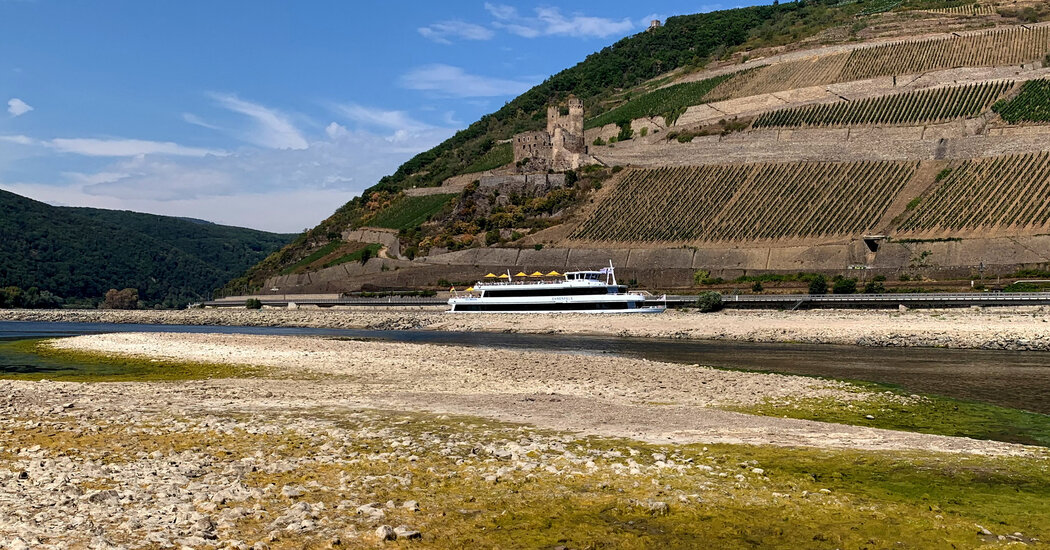Mark Farmer’s two-week river cruise from Amsterdam to Budapest got off to a bad start. For the first four days, there were no luxurious dinners overlooking the Rhine River or views from the top-deck balcony room that he and his wife had booked.
In fact, there was no boat at all. He and the other 150 or so passengers were shuttled around the Netherlands and Germany on buses, queuing up in long lines for bathrooms at highway rest stops and cramming into small restaurants.
“We were not happy,” said Mr. Farmer, a sales manager for a waste and recycling company. He and his wife, who live in Arizona, had booked the August trip, which had cost $18,000 including business-class flights, to celebrate their 35th wedding anniversary.
One of Europe’s worst droughts in decades has left the water level of parts of the Rhine and the Danube rivers too low for ships to pass, paralyzing commerce and causing disruptions for companies that transport goods and commodities like oil and coal. The drought has also affected river cruises, forcing passengers to cope with last-minute changes to their itineraries, long bus rides and missed excursions.
River cruising is a multibillion-dollar industry, with 1.6 million travelers, many of whom were over the age of 55, cruising European rivers in 2018, a number that had nearly doubled from 2013, according to Statista, a provider of market and consumer data. Cruise Lines International Association, a trade group, said the largest group of passengers come from North America.
Nearly 65 percent of European Union territory is currently under some degree of drought warning, according to the European Drought Observatory, which aims to improve drought resilience. Droughts are likely to become more frequent in the coming years, researchers say, because of the worsening impact of climate change, which is caused by the burning of fossil fuels.
Rudi Schreiner, the president and co-owner of AmaWaterways, a river cruise company with a fleet of 26 ships, said that when water levels in the Lower Rhine are too low, cruise passengers are taken on an excursion to a nearby town by bus and then brought back to a spot on the river where water levels are higher. For each day that the cruise itinerary differs from what was scheduled, a passenger receives a voucher for 15 percent off the next seven-night cruise, he said.
Rainfall in Germany last week has provided relief, but the reprieve may be temporary. “The question is how long it will last,” Mr….
Click Here to Read the Full Original Article at NYT > Travel…
